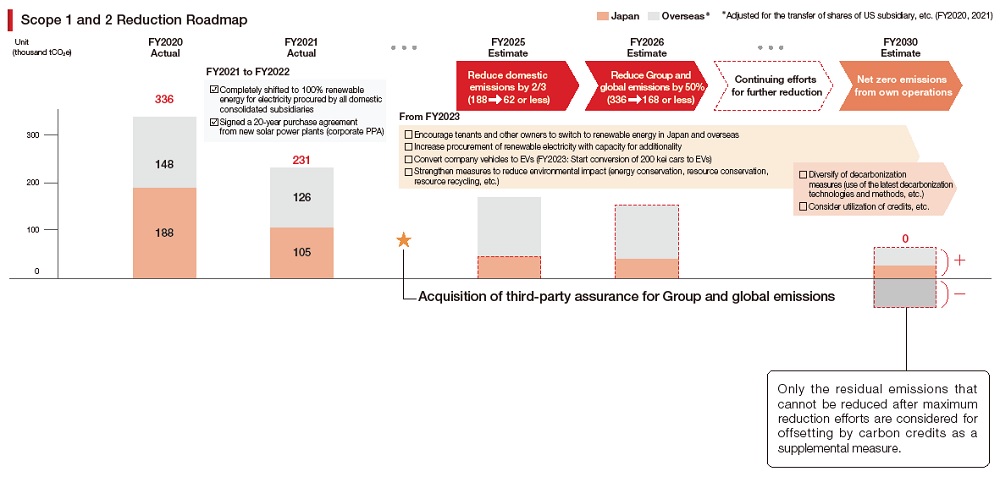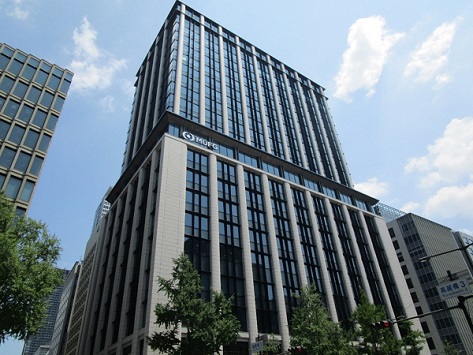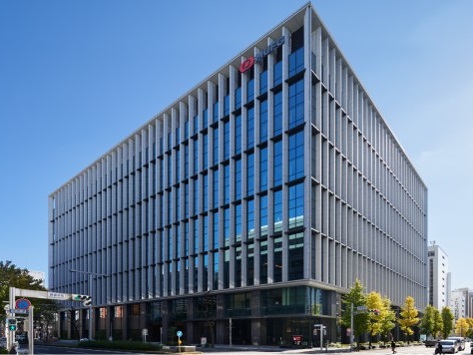Opening
Mitsubishi UFJ Financial Group (MUFG) recognizes that, among the environmental and social issues we face, the conservation and protection of the global environment is the shared responsibility of all of humanity, and is working to provide solutions for all stakeholders in order to realize the Purpose we established in April 2021, “Committed to empowering a brighter future.”
In the “MUFG Group Code of Conduct,” MUFG positions “Commitment to the Environment” as part of its employees’ “Responsibility as a Corporate Citizen,” and the Board of Directors sets forth the policy for the specific actions to be taken in order to implement commitment to the environment in the “MUFG Environmental Policy Statement.” The Policy Statement’s section on “Environmental Actions through Business Activities” stipulates “Reduction of Environmental Impact at Our Offices,” “Environmental Improvement and Pollution Prevention,” and “Awareness Raising Across the Group,” and efforts are being undertaken to address each of these areas.
Climate Change-Related Initiatives
- Categorized as Scope 1 and Scope 2 in the GHG Protocol.
Efforts to Rreduce GHG Emissions from Our Own Operations
To reduce GHG emissions and mitigate global warming, MUFG aims to achieve net-zero GHG emissions in its own operations by 2030. In addition to our initiatives to conserve energy, we are making efforts such as adopting renewable energy sources for the electricity we use and switching to electric vehicles (EVs). We are also working to establish and introduce green power,(note) which is an expandable renewable power source, to directly contribute to increasing renewable sources of power.
Overseas, while accumulating expertise from promoting domestic environmental initiatives, MUFG will accelerate the implementation of specific measures, taking into account the status of policies and systems to promote decarbonization in each country.
- Green power, generated from renewable energy sources such as wind or solar energy, is sent directly from the power plant to the consumer. Customers can use green power directly as electricity for their own use, rather than being “deemed” to do so.
Progress on Reducing GHG Emissions from Our Own Operations
In FY2021, MUFG’s in-house GHG emissions totaled 231,000 t-CO2e, which was a reduction of 105,000 t-CO2e (31%) from the previous fiscal year (336,000 t-CO2e). Moreover, MUFG obtained third-party limited assurance for the FY2021 GHG emissions results for the holding company and MUFG Bank (operations in Japan).
In FY2022, MUFG successfully shifted to 100% renewable energy for electricity procured by all domestic consolidated subsidiaries. In addition, MUFG also set new interim targets to accelerate its efforts to achieve net zero emissions from our own operations by 2030. In order to achieve these interim targets, from FY2023 onward, MUFG will encourage tenants and other owners to switch to renewable energy in Japan and overseas, convert company vehicles to EVs, and strengthen measures to reduce our environmental impact.
Interim Targets
- FY2025: Reduce domestic GHG emissions by two-thirds from FY2020
- FY2026: Reduce Group and global GHG emissions by 50% from FY2020

Efforts to Switch to Renewable Energy through Corporate PPAs
In July 2022, MUFG utilized an off-site corporate PPA(note1) to introduce electricity derived from renewable energy generated by a solar power plant to around 40 locations in Japan. MUFG was involved in the construction of a new 2,000 kW solar power generation facility, and will purchase electricity derived from renewable energy sources over the long term. Subsequently, MUFG established a new 2,000 kW solar power generation facility in September 2022, with all of the renewable power generated to be utilized at MUFG Bank’s data center.
Through these types of initiatives, MUFG is making a direct contribution to the increase in the number of expandable renewable power sources(note2) in Japan. We will continue to pursue such efforts in order to further the spread of renewable energy.
- PPA, or Power Purchase Agreement, is a service in which the power producers and electricity consumers execute a purchase agreement for renewable electricity for a price and period agreed in advance, and renewable energy generated from renewable power sources installed off-site, not in demand areas, is supplied to consumers via ordinary power grids.
- Contribution to the spread and expansion of new renewable energy through the introduction of renewable energy.

Efforts to Achieve Carbon Neutral Company Vehicles
Efforts on Energy Efficiency and Conservation
MUFG has been implementing and promoting a variety of initiatives to conserve energy, including response to the Act on the Rational Use of Energy and the Act on Promotion of Global Warming Countermeasures.
Under the evaluation system established in the Act on the Rational Use of Energy to categorize business operators, MUFG Bank, Mitsubishi UFJ Trust and Banking, and ACOM were recognized as S rank companies (excellent companies for energy efficiency) for FY2022 (evaluation of FY2021 results). MUFG will continue to promote various efforts to conserve energy and improve energy efficiency, not limited to adhering to the relevant laws and regulations, in order to achieve net zero by 2030.
Specific Energy Conservation Initiatives
- In terms of equipment, lighting is being switched to LED and motion sensors are being installed to turn lights on and off automatically, while equipment such as air conditioning systems are being replaced with high-efficiency models.
- As for operations, efforts under way include setting air conditioning equipment operating hours (for example, to operate until 7 p.m. at the Tokyo head office building), adjusting the number of elevator cars in operation based on the time of day, shutting of blinds (when the outside temperature reaches 30°C), adjusting the brightness of lighting in common areas, and setting air conditioners to reasonable temperatures in summer and winter (based on the government’s recommended temperature settings, etc.).
- In addition, Mitsubishi UFJ Trust and Banking and ACOM are engaged in activities to raise awareness at the respective companies through regular internal dissemination of information on various initiatives and training.
Efforts to Conserve Energy in Buildings
- MUFG obtained its first “ZEB Ready(note)” certification (energy saving of 50% or more) for the new park office and library in MUFG Park, for which construction was completed in June 2023.
- Certification as a net zero energy building, which is granted to buildings that achieve a 50% or greater reduction in primary energy consumption from the benchmark based on the building’s use, size, etc.


- In addition, MUFG Bank reconstructed two of its head office buildings, the Osaka Building in 2018 and the Nagoya Building in 2021. Both buildings were designed to be environmentally conscious and were fitted with all-LED lighting, window glass with advanced insulation (low-E glass), and equipment to effectively utilize rainwater. Subsequent to the CASBEE(note) evaluation of the buildings’ environmental performance, both buildings obtained S rank, the highest rating, based on CASBEE Osaka Mirai and CASBEE Nagoya for the Osaka Building and Nagoya Building respectively.
- The Comprehensive Assessment System for Built Environment Efficiency (CASBEE) is a method for evaluating and rating the environmental performance of buildings. It is a comprehensive assessment of the quality of a building, evaluating features such as interior comfort and scenic aesthetics, in consideration of environment practices that include materials and equipment that save energy or achieve smaller environmental loads.


- The MUFG/ MUFG Bank Tokyo head office building is slated for future reconstruction, and the plan is to build a new “MUFG Main Building” that is designed to be carbon-neutral, energy-saving, and resource-recycling.
- In other future reconstruction projects as well, MUFG will continue to pursue environmentally conscious building efforts such as obtaining ZEB and CASBEE certification.
Efforts to Establish Recycling-Based Society and Circular Economy
Recycling of Waste
A target waste recycling rate of at least 90% has been set for MUFG locations in Japan, and making greater efforts to properly sort waste is being promoted by installing waste disposal stations where recyclable waste can be sorted, establishing rules for sorting and collection, and providing specific examples of proper sorting. In FY2022, MUFG Bank achieved a 100% paper products recycling rate for its head office buildings in Tokyo, Nagoya, and Osaka. The Tokyo head office building is also conducting kitchen waste recycling, for which the FY2022 waste recycling rate was over 90% (94.9%). We aim to continue to improve the waste recycling rate, including at other head office buildings.
Overseas, Krungsri (Bank of Ayudhya) in Thailand has been promoting the “Krungsri Zero Waste” project since 2018. This project aims to raise employee awareness of waste problems through training sessions and waste sorting activities, and works to reduce and recycle waste.
Reducing, Reusing, and Recycling of Paper
In order to effectively utilize forest resources, MUFG is reducing the amount of paper used along with reusing and recycling paper.
Measures to cut down on paper usage include visualization of the number of pages printed out, promoting smart work (actively using the online meeting system, using monitors to display materials, etc.), and digitization of contract documents and materials distributed to customers such as bank books, prospectuses, and account activity statements.
With regard to efforts to reuse paper, in FY2022, 100% of paper purchased at the MUFG Bank headquarters and head office, banking offices, and systems and administrative centers was recycled paper.(note) In addition, an initiative is under way on a trial basis at MUFG Bank’s Tokyo head office and the Ikejiri Building to recycle resources within the company by recycling paper to re-use in each building as toilet paper.
As for paper recycling, in FY2022 MUFG Bank achieved a 100% recycling rate at its head office buildings (Tokyo, Osaka, and Nagoya).
- Recycled paper: Paper with a recycled pulp content of at least 70%.
Reducing, Reusing, and Recycling of Plastic and Switching to Renewables
In response to environmental problems concerning plastic such as the impact on the ocean and oceanic resources, MUFG is promoting initiatives to reduce, reuse, and recycle plastics (the “3Rs”) and adopt renewables.(note)
Activities aimed at reducing the volume of plastic used include recommending that tenant shops and cafes for employees stop giving out straws derived from petrochemicals and adopting contactless payment and other transaction services. In addition, MUFG is also working to efficiently utilize resources by engaging in activities to encourage reuse, such as the collection and redistribution of used office supplies made of plastic.
MUFG has been promoting recycling by installing dedicated waste bins for PET bottles in order to properly sort plastic waste, and in FY2022 MUFG Bank achieved a PET bottle recycling rate of 100% at its head office buildings in Tokyo, Nagoya, and Osaka. Efforts are also under way to promote the switch to “horizontal recycling” (making used bottles into new bottles), and the MUFG Bank head office building in Nagoya has achieved a 100% horizontal recycling rate. We will continue to broadly promote horizontal recycling.
As for initiatives to switch to renewables, Mitsubishi UFJ NICOS has adopted biomass-derived plastic for the clear wrapping it uses for its member information magazine, and MUFG will continue to pursue the switch to renewable resources for plastics.
- Here, renewable refers to substitution with a renewable resource such as paper or plastics derived from plant matter.
Efforts Related to Water Resources
MUFG is engaged in efforts on a global basis to conserve water through the effective use of water resources.
To promote the reuse of water and utilization of rainwater, water treatment and rainwater utilization equipment has been installed in some head office buildings in Japan.
Overseas, MUFG is working to reduce water usage at subsidiaries located in highly water-stressed countries. Krungsri(note) is taking measures such as wastewater reuse in order to reduce the amount of tap water used at the Bangkok head office, and has reduced water usage at its Phloenchit office by approximately 40% by installing water-saving equipment. In addition, Bank Danamon in Indonesia has installed hygienic water infrastructure in five regions.
We will continue to pursue various efforts to effectively utilize water resources.
- Krungsri established their “Policy for Environment, Resource, Occupational Health, and Safety” to promote and support the environmental management and resource efficiency. The policy presents a guideline to determine the environmental protection and resource conservation measures, including those related to water consumption as below.
- ・Communicate and campaign about correct and efficient water consumption
- ・Stipulate appropriate water consumption time (e.g., watering plants, cleaning space in front of the building, etc.)
- ・Use water-saving and environmentally friendly sanitary wares
- ・Stipulate measures on wastewater reuse (e.g., wastewater treatment per stipulated standards and wastewater reuse for some activities)
- ・Log monthly water consumption

